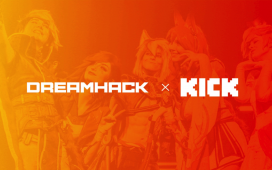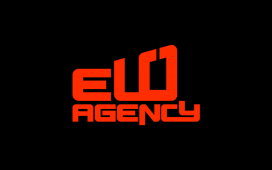Mentioned in this article
Call of Duty: Mobile’s release and subsequent success is a huge indicator of the popularity, appeal, and reach of mobile titles. The game has amassed over 100M downloads in just the first week of its release. While it’s fair to say that titles like PUBG Mobile, Free Fire, and even Rules of Survival have opened up the mobile shooter genre, the numbers which Call of Duty: Mobile managed to put up were simply unprecedented.
What was even more interesting is the fact that the majority of the downloads were from the U.S., a region not particularly known for its mobile esports market. India followed close behind with 13.7M downloads in the first week, which seemed more in tune with how gaming and esports have developed in the subcontinent.
India has established itself as a huge market for mobile gaming and mobile esports, and the popularity of titles such as PUBG Mobile and Free Fire are proof of this. While the rest of the esports world is caught up in their Overwatch Leagues, LCS (League of Legends Championship series) games, Dota 2 Pro Circuits and ESL Pro Leagues, countries such as India and Indonesia have opted for a different path. The existing socio-economics, cultures, and the infrastructure in these countries have allowed mobile gaming to boom while PCs and consoles continue to play second fiddle.
In an esports context specifically, India is the largest market for PUBG Mobile, both in terms of viewership and number of players. Indian content creators and professional players have all ridden the PUBG Mobile wave to reach levels of success that their PC counterparts could never even dream of achieving. In many ways, the game is no longer just a game in India, it’s a cultural phenomenon.
With an already established player base, existing content creators, pro players, tournament organizers, and an entire network of what it takes to build a solid ecosystem, PUBG Mobile is set to enjoy a long and fruitful relationship with the country. With the developers already having invested a considerable amount of resources in both developing and marketing the game in India, it will certainly be interesting to see how the arrival of Call of Duty: Mobile affects changes things.
Esports Readiness

The gameplay feels very polished and crisp and the fact that it is part of a series that has long established itself as an esport makes transitioning into competitive play that much simpler. In terms of gameplay and balance it is quite competitive and has almost all the necessary features required to make it a competitive title along with a sizeable player base.
However, right now, the title is relatively new to the market and therefore it will take some time to develop an esport ecosystem around it. But already, tournaments have started cropping up in the South-East Asian region, the first of which is in Thailand where a $6.6K USD tournament was announced which includes a LAN Final. In all senses, the signs indicate that Call of Duty: Mobile will eventually become an esport but it remains to be seen, when.
The game’s publisher, Tencent, is known for having a tight grasp on the title, as it has done with PUBG Mobile, which does mean that the big LANs and tournaments will start kicking off only when it decides it is the right time. There is also a possibility that Tencent could use the title to break into the North American and European markets first and then focus on Asia and South Asia. The game has been doing really well in the western markets, which aren’t normally able to show numbers as consistently as the Indian and South-East Asian markets, particularly when it comes to mobile esports.
Easy for Tournament Organizers and Viewers Alike

For all the things PUBG Mobile is, at its core, it continues to be a Battle Royale, a genre that has always had a question mark on it in terms of competitiveness. Additionally, 64 players in a server makes it incredibly hard to follow narratives and storylines. This makes following and watching any competitive Battle Royale a tedious task.
For tournament organizers (TOs), producing a PUBG Mobile LAN is significantly more cumbersome as it requires much more manpower. From observing to scorekeepers and admins, PUBG Mobile requires that many more people work behind the scenes to make an event broadcast look seamless. To top this off, costs for travel, stay, and conveyance for all these additional members plus that of 64 – 100 players, can be a significant factor for organizers when deciding the viability of an event. With more players and staff in the form of both production and admins, the chances of errors and risks of delays also rises significantly.
Call of Duty: Mobile is free from many of these issues. The game itself is easy to follow because there is a scoreboard and just ten players in each game. Once the scene is established, players and teams will be able to create rich backstories and rivalries that can lead to good narratives, which keep audiences engaged. With only ten players in the server, the manpower and cost required to produce matches will be significantly lowered. TOs can be flexible about budgets and costs by tweaking formats and number of teams at the LAN.
The lower barrier to hosting and executing tournaments means that community esports, local organizers, and the tier two scene can grow fast, thus forcing the hands of bigger TOs. Shorter game times and the concept of matches and rounds, allows viewers the option to tune in and out and also means that integrating ads and sponsors is more seamless.
Influencer Support

With PUBG Mobile, the support of influencers and content creators was paramount to its success. Player bases tend to be affected by which big streamer is playing what title at what time and how often. Developers will rope in streamers around the time of launch to generate more hype and interest in their games. Recent examples of this include World of Warcraft Classic, Call of Duty: Modern Warfare, Sea of Thieves, and Grand Theft Auto V Role Play.
For Call of Duty: Mobile and India one would think this is easy. With both Tencent having a stake in both PUBG Mobile and COD: Mobile, it would seem as if streamers and creators would have little issue in trying out newer titles and Tencent’s existing rapport with them would encourage them to do it. However, this doesn’t seem to be the case, at least for now.
One of India’s top PUBG Mobile influencers and streamers, Animesh ‘Thug’ Agarwal, recently found this out the hard way. Popular and well respected in the mobile gaming community, Thug also owns and supports various rosters, many of whom play under the tag, 8bit. It came as little surprise when he was invited to the PUBG Mobile India Tour grand finals, an event conducted by PUBG Corporation/Tencent Games themselves that boasted an impressive $150K prize pool, as a guest. However, he found out that his invite had been rescinded while on his way to the event and claimed that the reason provided to him was the fact that he had streamed Call of Duty: Mobile on his channel during the previous week.
While the community was visibly outraged, the matter seems to have been resolved internally for now. However, the context and the way it was handled initially, seems to raise some serious questions on how Tencent wants to approach the Indian market with the title.
The Road Ahead – The Three Key Factors
Call of Duty is far more likely to achieve success as an esport because of its simplicity and ease of execution. It also has a very mass appeal, in the sense that it’s easy for viewers to watch the game without losing track of what happened. Rounds are easy to follow, unlike PUBG Mobile, where you spend half your time wondering what your favorite team is up to.

With tournaments being easier to execute and costing less, there is little stopping Call of Duty: Mobile from booming into a massive esport title for mobile. The one, and in my opinion, only factor deciding the direction and pace of the game’s growth in India is the publisher behind it. Tencent knows that there is a significant overlap between the player bases of PUBG Mobile and Call of Duty: Mobile and has to decide how to grow both the titles.
The company also recently acquired a majority stake in Supercell, another mobile game developer who is known for titles such as Clash Royale, Clash of Clans, and Brawl Stars, each of which is an esport. So it’s not just Call of Duty: Mobile and PUBG Mobile that Tencent have to worry about, that are competing with each other. Titles like the mobile version of League of Legends which is known as Wild Rift will also likely have an impact on the growth and development of mobile esport titles.
All things said and done, the natural competitive nature of the title, it’s prevalence as an existing esport, and the already existing player base, are all good indicators that Call of Duty: Mobile will become a competitive title in the mobile gaming space. The game found the most popularity in the U.S. in its first week, with 17% of downloads and India was second on the list.
While we have already discussed the details of why the title can be a great esport, in my opinion, there are three key things that will help accelerate this process. The rise and growth of content creators with support from the publishers is priority number one. Tencent taking ownership of developing the esports ecosystem or allowing third-party organizers like ESL, Dreamhack, PGL and even local TOs is two. And finally, having an open line of communication with the community to help them understand what the publisher’s plans are and if they have a roadmap for the same.
Shounak Sengupta is a staff writer for AFK Gaming.
Upcoming Event
Esports Rising – Nov. 14 | Who Is Attending?
Esports organizations in the likes of Team Liquid, 100 Thieves, Gen G. Game developers, including Riot Games and Blizzard. Non-endemic sponsors such as adidas, Anheuser-Busch InBev, and Jack in the Box and more. Sponsored by Lagardère Sports, and presented by Sports Business Journal / Daily, with support of The Esports Observer.














